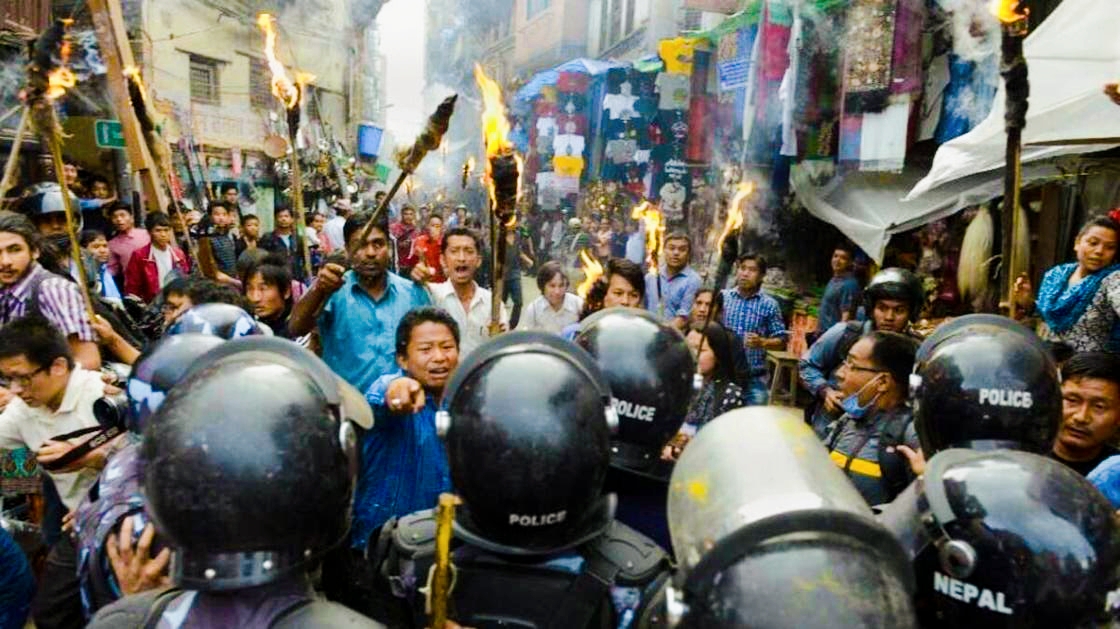Nepal's Prime Minister K.P. Sharma Oli submitted his resignation today, Tuesday, amid a wave of violent protests that erupted in the country against rampant corruption, according to his assistant Prakash Silwal.
The capital Kathmandu and other places in Nepal witnessed violent clashes between protesters and security forces, as authorities used light weapons, water cannons, and tear gas to suppress the protests that resulted in the deaths of 19 people and injured more than 100 others, according to "India Today" channel.
Protesters stormed the home of Nepal's President Ram Chandra Poudel and set it on fire, as well as set fire to the homes of several prominent politicians, including the home of Puspa Kamal Dahal, leader of the Nepal Communist Party (Maoist Centre), and the home of Minister of Information and Communications Prithvi Subba Gurung, in addition to the home of Interior Minister Ramesh Lekhak, who announced his resignation due to the current events.
Thousands of young people, who dubbed their protests the "Generation Z Revolution," gathered yesterday, Monday, in Kathmandu, demanding the government revoke its decision to ban social media and messaging applications, and put an end to the corruption plaguing the country.
In light of this crisis, authorities imposed a curfew in the capital Kathmandu, while the Russian embassy urged its citizens to avoid going out into the streets.
The government announced today, Tuesday, the lifting of the restrictions imposed on September 4 on platforms such as Facebook, Instagram, WhatsApp, and other social media that were not registered with the Ministry of Information and Communications.
This significant political move reflects the extent of public anger in Nepal, amid ongoing demands for reform and a fight against the rampant corruption in state institutions.

